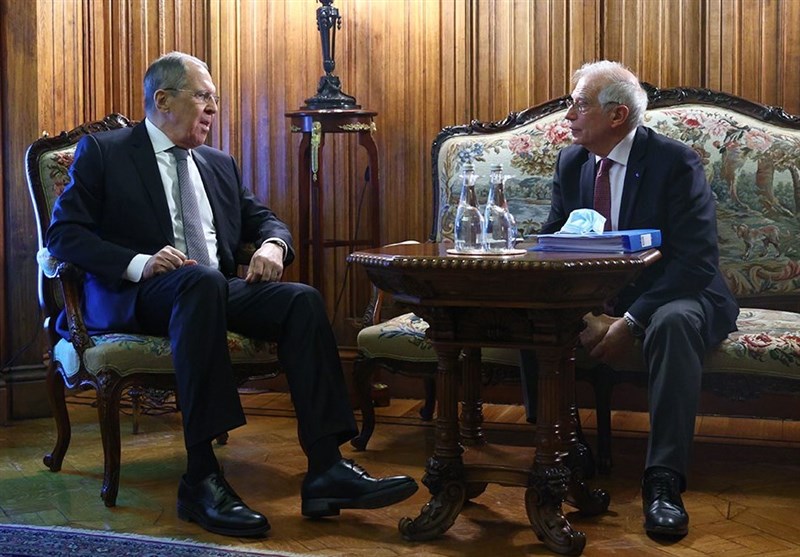Morteza Makki told Strategic Council on Foreign Relations that with the victory of Joe Biden in the US presidential elections, the European Union intensified its political pressure and criticisms on Russia due to greater convergence and cooperation between Washington and Brussels after the termination of the presidency of Donald Trump in the United States.
“Russia reciprocated by adopting a stronger and more serious stances against pressures by the United States and the European Union as such positions are partly considered as a reaction to the US’s and EU’s crossing of the redlines of Moscow.”
He said that the United States and the European Union have now targeted domestic policies of the Russian government and stepped up pressures on Russia, adding that “they try to exploit the issue of the violation of human rights and democratic principles and interfere in the domestic affairs of Russia thus putting greater pressure on President Putin with the hope that Russia would be forced to show flexibility towards centers of crises and hot spots such as Ukraine and or Russia’s policies in the Middle East and especially in Syria.”
Makki believes that Putin’s threats to cut its relations with the European Union are in fact an effort to exploit the gap created inside the European Union concerning the quality of relations with Russia.
Asked about various views inside the European Union towards relations with the Kremlin, he said “while some European countries such as Germany, Italy and Spain emphasize on the improvement of relations with Kremlin and believe that the use of sanctions as a tool would not have effective impact on Russia to change its policies, countries such as Germany believe that with cooperation and stronger dependence between Russia and the European Union, Moscow could be attracted and aligned more to Brussels.”
“Russia is somehow trying to increase its bilateral relations with some powerful European countries such as Germany in order to challenge the EU’s foreign and security policy. And on the other hand, it will weaken the anti-Russian approach of NATO as countries such as Germany and Italy are strongly opposed to military and security escalation with Russia and believe that repercussions of such tension and military escalation between Russia and the Western countries would be blamed on European governments while the United States would pay the least cost in this political and military tension and therefore try to review anti-Russian approaches inside the European Union.”
Asked about intensified differences among European countries concerning the adoption of anti-Russian policies, Makki said there are deep differences between leftists and moderate rightists in one hand and the extremist rightists on the other.
“The extremist rightists in European countries are defending proximity and alignment with Russia; however, moderate rightists are adopting a more conservative approach towards the adoption of anti-Russian positions. Such differences have cased disputes between political currents inside the European countries on one hand and the European governments on the other in connection with the adoption of sanctions policies against Russia. So they have failed to pursue a united foreign and security policy towards Russia.”
On the role of China in the escalation of tensions between Brussels and Moscow, Makki said “without doubt, China is playing a serious role in the intensification of tensions between Russia and Europe as Beijing plays a significant role in the heightening tensions between Russia and the United States. Pressures on Beijing and Moscow by the United States and Europe have brought China and Russia close together against the Western sidings. China is the world’s largest importer of petroleum and can play a significant role in supplying the economic needs of Russia and enhancement of economic commercial and financial cooperation between Moscow and Beijing provides a support for Russia so that it could stand against the pressures of the United States and Europe in a stronger manner.”
Makki said that the US government has introduced China and Russia as an economic and security threat of the twenty-first century, adding that “as Europe and the US have admitted under the umbrella of NATO common obligations to maintain collective security, the prospects of relations between Europe and Russia is not bright and progressive and political and economic tensions are expected to increase between Russia and the European Union.”
Asked about the different role of Germany, he explained that “Germany, as the largest member of the European Union and the most influential country inside the union, is opposed to the sanctions policy against Russia. Germany is probably under more pressure by the United States and European countries that are proponents of exerting more pressures on Russia. Here NordStream2 pipeline project is one of the major projects between Germany and Russia that are going to face serious challenges and obstacles for the completion of the pipeline construction.”










0 Comments